As passionate golfers and equipment experts at Click Golf, we've seen firsthand how the right golf clubs can elevate a player's game. However, we've also witnessed many golfers make critical errors when selecting their golf equipment. In this comprehensive guide, we'll explore the common mistakes in golf club selection and provide expert advice on how to avoid them. Whether you're a complete beginner or a seasoned player looking to upgrade your golf bag, this article will help you make informed decisions and improve your performance on the course.
One of the biggest mistakes golfers make is purchasing clubs off the rack without considering custom club fitting. Many golfers assume that standard clubs will suffice, but this couldn't be further from the truth.
Why it's a mistake: Every golfer has a unique swing style, body type, and skill level. Off-the-rack clubs may not complement your individual needs, leading to suboptimal performance and potentially even injury.
How to avoid it:
Schedule a custom club fitting session with a professional.
During the fitting, pay attention to factors like shaft flex, lie angle, and grip size.
Be open to trying different brands and models to find the best clubs for your swing.
Remember, custom fit clubs can have a big impact on your game, helping you hit more fairways and achieve maximum distance.
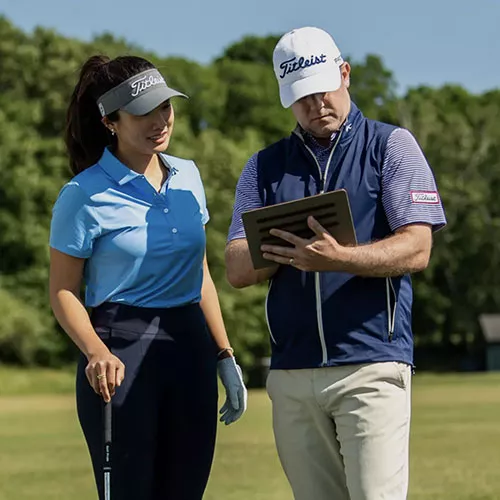
Shaft flex plays a crucial role in your golf swing, yet it's often overlooked by amateur golfers when selecting clubs.
Why it's a mistake: Using a shaft that's too stiff or too flexible for your swing speed can negatively affect your ball flight and overall performance.
How to avoid it:
Get your swing speed measured during a club fitting session.
Choose a shaft flex that matches your swing speed: generally, faster swing speeds require stiffer shafts, while slower speeds benefit from more flexible shafts.
Consider different shaft materials (steel vs. graphite shafts) based on your needs and preferences.
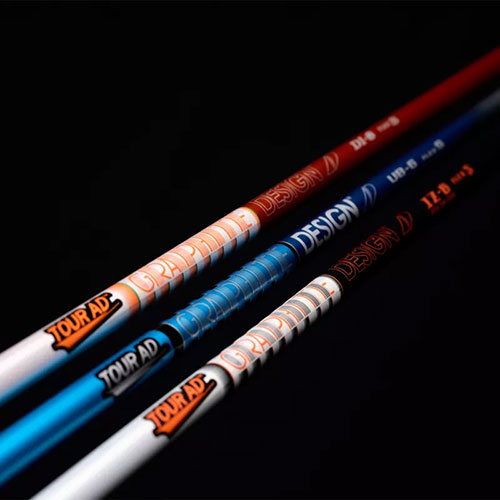
The design of the club head can significantly impact your performance, especially when it comes to golf irons.
Why it's a mistake: Using the wrong club head design for your skill level can make it harder to achieve consistent ball striking and desired shot shape.
How to avoid it:
For higher handicap golfers, consider cavity backs or game-improvement irons, which offer more forgiveness on off-centre hits.
More skilled players might prefer blade-style irons for better shot-shaping abilities.
Don't be swayed by what professional golfers use – their needs are often very different from those of amateur golfers.

The golf grip is your only point of contact with the club, yet many golfers overlook its importance when selecting clubs.
Why it's a mistake: A grip that's too small or too large can lead to inconsistent shots, reduced control, and even hand pain or injury.
How to avoid it:
During your club fitting, have your hand size measured.
Try different grip sizes to find the one that feels most comfortable and allows for proper hand placement.
Consider your playing conditions – if you often play in wet weather, you might benefit from a slightly larger grip for better control.
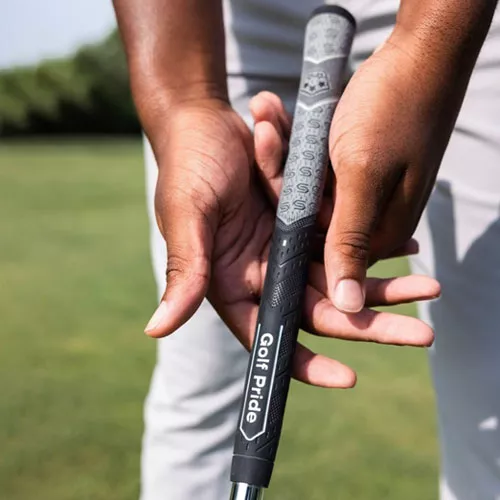
While it's tempting to pack your golf bag with every club imaginable, this approach can actually hinder your game.
Why it's a mistake: Carrying too many clubs can lead to decision paralysis on the course and may violate golf rules, which limit you to 14 clubs.
How to avoid it:
Focus on versatility when selecting clubs for your bag.
Consider replacing long irons with more forgiving hybrid clubs.
Ensure you have a good balance of clubs for various distances and shot types.
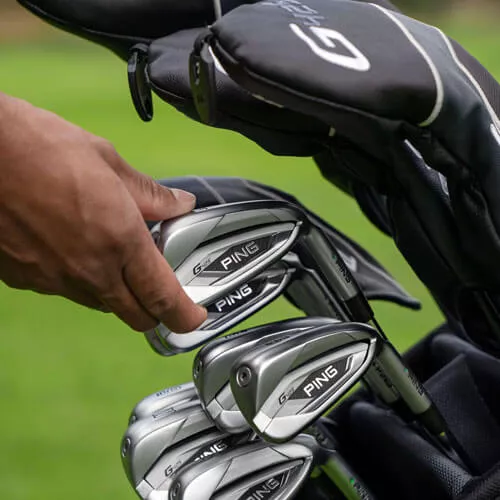
While not strictly a club selection issue, many golfers make the mistake of not paying enough attention to their golf ball choice.
Why it's a mistake: Different golf balls are designed for different swing speeds and playing styles. Using the wrong ball can negate the benefits of even the best-fitted clubs.
How to avoid it:
Experiment with different golf balls to find one that complements your swing speed and desired ball flight.
Consider factors like spin rate, compression, and feel when selecting a ball.
Don't be afraid to use different balls for different situations or weather conditions.

Many golfers, especially beginners, make the mistake of prioritising distance over all other factors when selecting clubs.
Why it's a mistake: While distance is important, factors like accuracy, consistency, and shot-shaping ability are equally crucial for lowering your scores.
How to avoid it:
During club fitting, focus on overall performance, not just distance.
Consider how each club performs on mishits, not just perfect strikes.
Remember that the ability to control your shots and hit more fairways often leads to better scores than pure distance.

A common mistake many golfers make is focusing too much on drivers and irons while neglecting their short-game equipment.
Why it's a mistake: A significant portion of your shots in a round will be from 100 yards and in. Having the right wedges and putter can have a massive impact on your scores.
How to avoid it:
Invest time in selecting the right wedges with appropriate lofts and bounces for your game.
Don't overlook the importance of finding a putter that suits your stroke and gives you confidence in the greens.
Consider getting a separate fitting session just for your short-game clubs.
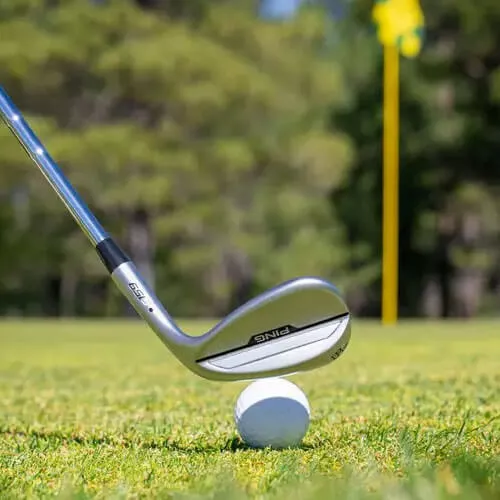
Many golfers select their clubs without considering the types of courses they typically play.
Why it's a mistake: The best clubs for links-style courses might not be ideal for parkland courses with tight fairways and lots of hazards.
How to avoid it:
Think about the courses you play most often when selecting your clubs.
Consider having multiple options in your bag to adapt to different course conditions.
Don't be afraid to adjust your club selection based on the specific challenges of each course you play.
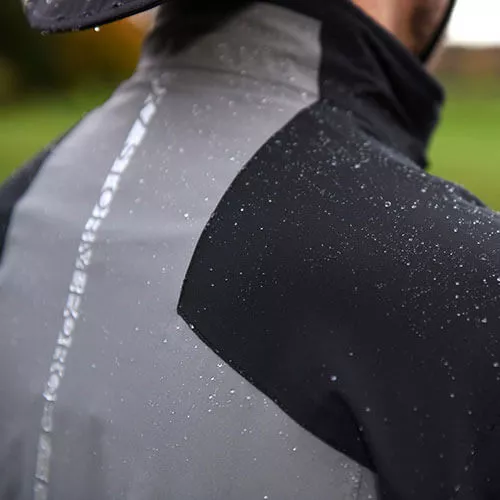
Some golfers fall into the trap of constantly chasing the latest technology, while others hang onto their old clubs for far too long.
Why it's a mistake: Upgrading too frequently can prevent you from getting comfortable with your equipment, while using outdated clubs might mean you're missing out on genuine technological improvements.
How to avoid it:
Instead of upgrading entire sets, consider replacing clubs gradually as your skills improve.
Focus on areas of your game that need the most improvement when considering upgrades.
Don't feel pressured to upgrade just because a new model is released – if your current clubs are performing well, stick with them.
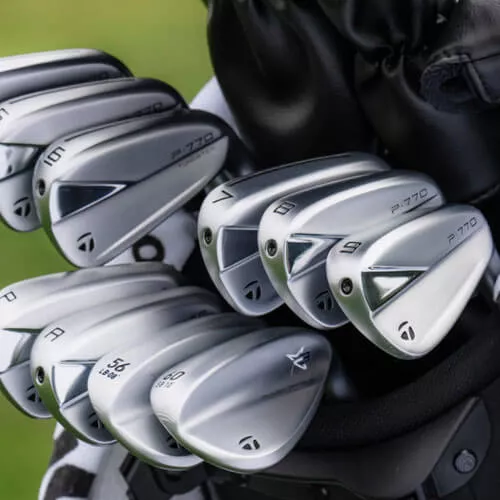
At Click Golf, we can't stress enough the importance of seeking expert advice when selecting your golf clubs. Professional club fitters and golf coaches can provide invaluable insights into your swing characteristics and equipment needs.
Here's how professional advice can help:
Objective Analysis: Professionals can use launch monitors and other technology to provide data-driven recommendations.
Experience with Different Brands: They can help you navigate the differences between various brands and models.
Holistic Approach: A good fitter will consider your entire game, not just individual club performance.
Long-Term Planning: They can help you create a plan for gradually upgrading your equipment as your skills improve.
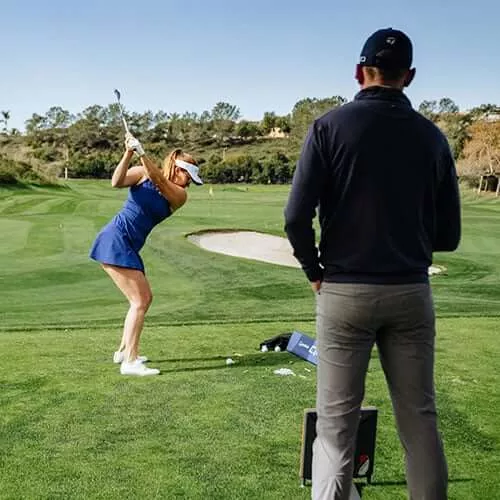
Selecting the right golf clubs is a crucial step in improving your game and enjoying your time on the course. By avoiding these common mistakes and seeking professional advice, you can ensure that your equipment is working for you, not against you.
Remember, the goal is to find clubs that complement your swing style, skill level, and playing preferences. Don't be swayed by what works for other golfers or what's currently trending – focus on what works best for you.
At Click Golf, we're committed to helping golfers of all skill levels find the perfect clubs for their game. Whether you're a complete beginner looking for your first set or an experienced player seeking to fine-tune your equipment, we're here to help. Our expert staff can guide you through the club selection process, arrange custom fittings, and provide ongoing support as your game evolves.
Invest the time in proper club selection, and you'll reap the rewards of the course. Here's to lower scores, more enjoyable rounds, and a lifetime of golfing success!